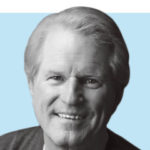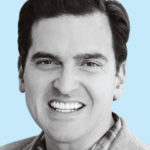By page 3 of Confessions of a Public Speaker, it’s clear that author Scott Berkun doesn’t plan to pull any punches, least of all about the mistakes that he’s made during his more than 15 years as a conference speaker. “In hundreds of lectures around the world,” he writes, “ I’ve done most of the scary, tragic, embarrassing things that terrify people.”
But perfection isn’t really the point, says Berkun, a former project manager at Microsoft who has written bestsellers on topics including management, creativity, and innovation, and whose work as a writer and speaker has appeared in Wired, Fast Company, The Economist, and other media outlets. The average person can make 1,500 verbal blunders a day, he writes, and even the best speakers make tons of mistakes: “As long as the messages comes through, people naturally overlook many things.… [H]istory bears out that people with clear ideas and strong points are the ones we remember.”
Berkun’s own goals as a speaker, he confides, are to be useful, to be good, and to sound like himself. Confessions of a Public Speaker is packed with anecdotes and advice, summing up what he’s learned about topics including nerves, speaker fees, technical preparation, delivery, and dealing with all the things that inevitably will go wrong.
The author doesn’t mince words when it comes to interacting with event organizers. His advice, written under the heading “Your hosts are control freaks,” includes this blunt assessment: “Slide templates are stupid 95 percent of the time.”
Recently Convene spoke with Berkun about the importance of listening to great speakers, why he likes to get to a meeting room at least an hour ahead of time, and what he wants to know about his audience in advance.
What inspired you to write Confessions of a Public Speaker?
People have a lot of very powerful fears around public speaking. And I know that from my own studies that books on public speaking are really, really boring. They don’t talk about the important things that are not that hard to learn. So, I thought that I had an opportunity [to provide] a fresh and honest take on how to do it well from the perspective of someone who does it all the time.
Is there any advice that you consider to be the most badly needed by speakers?
It’s very clichéd [and] advice that people dismiss: Just go do it.
Let’s say you wanted to learn how to play guitar. Well, the first thing you do is pick up a guitar and start trying to learn. There’s no way around it. And public speaking is the same thing. If you’re afraid of it, or have concerns about it, but want to get better, well, go somewhere where you can do it for five minutes. And then you learn, and then you do it again. There is no way to develop a skill at anything without actually doing this thing.
I joke in the book about this. I say, reading this book isn’t going to make you a better speaker until you go and try to do a short talk or presentation, and try to apply this stuff. And then pay attention to how well you did and do it again.
For your 2007 book, The Myths of Innovation, you looked at the lives of the world’s great innovators. Did you do that with the world’s great speakers?
There are lots of books about public speaking that talk about how great this speaker was, or how great that speaker was. And I found that was really the wrong approach. You have to listen to a speaker if you’re going to learn anything about why they’re good or bad.
There’s a collection of CDs with the great, great speeches from Western history from the last 50 years: Kennedy, Nixon, Churchill, Martin Luther King Jr., Malcolm X.… When I was doing other work, I would always have that on in the background, and whenever I heard something that I connected with, I would pay attention and see who it was. And then I read about some of the methods that they used. I also read a lot about speakers who lived before there was recorded media, such as Lincoln, Emerson, and Mark Twain. I tried to find out as much as I could about their preparation methods.
I think that stand-up comedians are some of the best examples of good public speakers. I pay attention to George Carlin and Richard Pryor. There are plenty of legendary speakers and legendary comedians who really qualify as great speakers.
Have you noticed, over the course of your career, that conferences have changed?
I think that, by and large, most conferences are very much the same. There are definitely some industries that have adopted more changes than others. Conferences around the web and technology tend to be a lot more open to change than most other fields. There are many events where they experiment and at least try different things. They will add one different thing to the agenda, and learn from it. They’ll keep it if it goes well; get rid of it if it doesn’t.
I think the worst, in terms of change, is anything academic or professional. I think it has a lot to do with the culture of whatever the industry is – some cultures are a lot more open to change than others.
How much difference do the physical attributes of a venue make in the success of your presentation?
It’s definitely an important factor. I think that the most important thing is that I’m comfortable in the room. I tell people this: I can be in a really bad room, but if I got there an hour ahead of time and I realized it was a bad room before I talked, I could still get comfortable and get used to it. I know what I have to deal with. But if I only discover that five minutes before I speak, then I’m still getting used to the room. And it’s going to affect me much more.
The direct answer to your question is that it matters a lot – if people are uncomfortable in their chairs, and the lighting is bad, and the temperature makes people uncomfortable. Then I’m at a disadvantage in the room.
What advice do you have for conference organizers about dealing with speakers?
The first one is to give speakers demographics about who’s attending a talk – how old they are, the male/female ratio, what job titles they have – so I’m informed about who exactly is going to be filling the seats. And then I can have an image in my head as I’m working on my material as to who it is I’m going to speak to. And that might change the stories I use.
And then number two is making sure that I have the opportunity, if I choose, to go to the room and do a sound check and make sure my slides look okay before I’m supposed to speak. That I have a chance to just check stuff out early, and that I have time to fix problems.
Does a multigenerational audience affect how you present?
A lot of it depends on context. It does make things a little bit more challenging. But let’s say that the event is about basketball, and I’m going to speak about the Boston Celtics. Now, even though everyone in the room is older or younger, and has different perspectives and different ways of speaking, they’re all in the room because they’re interested in the Boston Celtics.
So, as long as I am telling stuff that, on a basic level, is interesting and is addressing the reasons why everyone chose to be in the room, then I can transcend the gaps, because they chose to come [to the talk]. If [the audience] were forced to show up, then those issues become a lot harder. But there’s nothing that prevents me from telling an anecdote that maybe connects better with older people than with younger people. Nothing prevents me from making sure that I address everyone who is there.
And that goes back to your point about having the demographics of the audience.
Exactly.
Book Excerpts
- Change only happens when someone does something different, which a lecture cannot do. Often I am hired to be inspirational and tell people tales of how great innovations came to be. The problem with inspiration is that it is hard to take with you. What’s thrilling in the lecture hall feels awkward in front of your boss. Someone has to leave the lecture, go back to his everyday world, and take the risk of doing something different with what he’s learned. No speaker can ensure this happens.
- Only well-chosen pictures are worth a thousand words, and even then, they can only be valuable if they are displayed long enough for the audience to comprehend their meaning. If you find natural ways to draw attention to things that illustrate your point, use them.
- Crowd size is irrelevant – what matters is having a dense crowd. If ever you face a sparsely populated audience, do whatever you have to do to get them to move together. You want to create a packed crowd located as close as possible to the front of the room. This goes against most speakers’ instincts, which push them to just go on with the show and pretend not to notice it feels like they’re speaking at the Greyhound bus station at 3 a.m. on Christmas morning.
- All good public speaking is based on good private thinking.
- Most venues for speaking and lecturing in the modern world are dull, grey, uninspiring, poorly-lit, generic cubes of space. They are designed to be boring (which is why it’s hard to stay awake during lectures) so they can be used for anything. And like a Swiss Army knife, this means they suck at everything. Your average conference room or corporate lecture hall is bought and sold for its ability to serve many different purposes, though none of them well…Blame speakers all you want – and we deserve most of the blame – but some fraction of hate should go to whoever chose the crappy room to stick the audience in.
- If the aliens landed during the TED conference, they’d obviously assume the guy standing on stage holding the microphone was the supreme overlord of the planet. For much of the history of civilization, the only public speakers were chiefs, kings, and pharaohs. But few speakers use the enormous potential of this power. Most speakers are so afraid to do anything out of the ordinary that they squander the very power the audience hopes they will use.
More Resources



